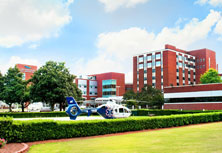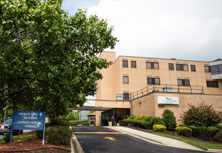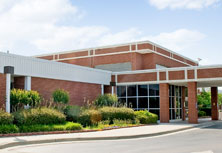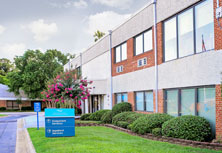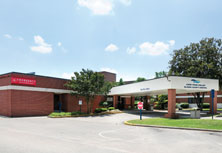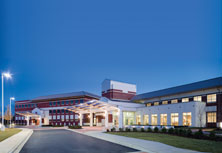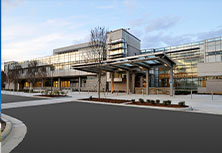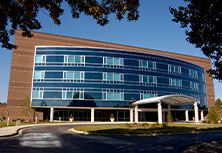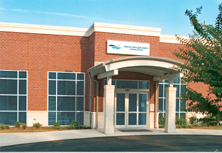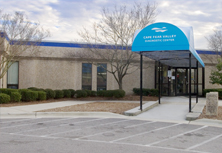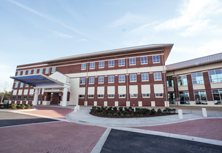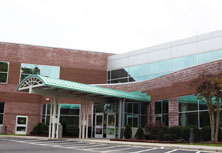General Surgery Residency Program
General Surgery Education Goals
The General Surgery Residency Program is structured to provide residents with evidenced-based fundamental knowledge and principles requisite to becoming outstanding general surgeons. We combine a broad didactic curriculum and progressive clinical experiences to ensure residents are prepared for board-certification and beyond. Throughout the five-year program, residents have the opportunity to train in such areas as GI, trauma/critical care, vascular, thoracic, hepatobiliary, emergency medicine, and transplant. Our faculty come from diverse backgrounds with interests in a variety of general surgery areas that help our residents grow into competent, well-rounded surgeons.
PGY 1
- Demonstrate competence in the care of surgical patients on the ward including preoperative evaluation, writing preoperative and postoperative orders, and postoperative care.
- Demonstrate competence in the basic pathophysiology of surgical disease.
- Achieve ACLS and ATLS certification.
- Demonstrate competence in basic procedures: start IV, placement of central lines, PA catheters, chest tubes, arterial lines.
- Demonstrate surgical competence in: basic techniques, sterile technique, surgeon in simple procedures, excision subcutaneous lesions, breast biopsies, hernia repair. First assist on larger procedures.
- Communicate as a professional with patients, hospital staff, students, fellow residents and attending staff.
PGY 2
- Demonstrate competence in the care of more complex or severely ill patients including critical care and trauma.
- Demonstrate the application of basic surgical knowledge and during evaluation and care of patients with more complex surgical problems.
- Demonstrate basic knowledge of surgical specialties while caring for multi-injured patients.
- Demonstrate competence in performing more advanced procedures: PA catheter, bronchoscopy, and endoscopy.
- Demonstrate competence in the pathophysiology and management of breast disease.
- Demonstrate competence in performing advanced procedures under supervision, and first assist on more complex surgical procedures.
- Communicate more effectively with patient care team; begin to assume leadership position within the team, show foresight and planning in regards to patient care, concise and effective presentation.
PGY 3
- Demonstrate competence as the "leader/supervisor" on a smaller surgical team with close attending supervision.
- Coordinate patient care to include appropriate evaluation and treatment by other health care professionals and consultants.
- Demonstrate mastery of basic surgical pathophysiology and patient care (ward and ICU), and a basic understanding of surgical alternatives.
- Demonstrate competency in teaching and supervising basic procedures including line placement, chest tubes.
- Demonstrate competence in teaching and supervising junior residents in the performance of basic surgeries including excision of subcutaneous masses, breast biopsies, and hernia repairs.
- Perform as surgeon on more complex surgical procedures.
- Demonstrate competence in endoscopy skills and indications for such procedures.
- Demonstrate competence in surgical treatment of endocrine conditions and disorders.
- Demonstrate improved communication with patient care team and function more effectively as team leader.
- Communicate effectively with other health care professionals.
- Begin to address issues of problem solving and dispute resolution.
- Demonstrate an understanding of the role of different specialists and other health care professionals in overall patient management.
PGY 4
- Function in the role of senior resident with its associated increase in responsibility in affiliated hospitals.
- Assume leadership of larger surgical teams and supervise care of surgical patients at various levels of acuity with input from surgical attending physicians, consultants and other health care professionals.
- Demonstrate competence in performing essential common surgical procedures as outlined by the SCORE Curriculum.
- Demonstrate competence in teaching and supervising more advanced operations.
- Demonstrate significant knowledge in general, trauma, and pediatric surgery.
- Demonstrate competence in the understanding of immunosuppression in the treatment of transplant surgical patients, and basic principles of the operations.
- Demonstrate further developed skills in problem solving and dispute resolution.
PGY 5
- Provide clinical and administrative leadership of residents and students assigned to the surgical services of the affiliated hospitals.
- Begin to function as a responsible surgeon under appropriate supervision.
- Master all essential common surgical skills/techniques as outlined by the SCORE Curriculum.
- Provide oversight of all aspects of pre-, peri- and post-operative care. Coordinate evaluation, input, and care from consultants and other health care professionals.
- Achieve the full competence (knowledge, skills, judgment) of a board eligible general surgeon.
